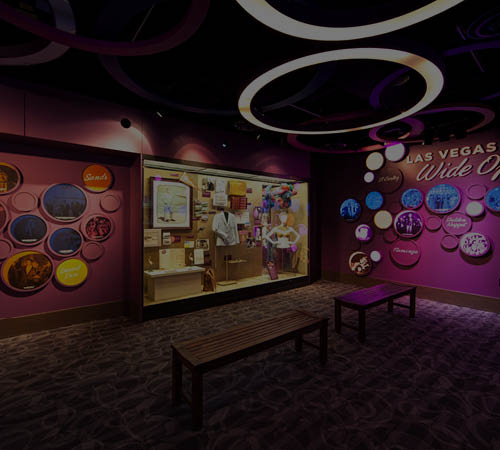THE MOB MUSEUM TO RECOGNIZE KEFAUVER DAY WITH FREE ADMISSION FOR NEVADA RESIDENTS ON SATURDAY, NOVEMBER 15
Important Date in Las Vegas History Commemorated with Community-Wide Access to the Museum and Historic Building
LAS VEGAS (October 2014) – On Saturday, November 15, from 10 a.m. to 8 p.m., The Mob Museum, The National Museum of Organized Crime and Law Enforcement, will commemorate the anniversary of the Kefauver Committee hearing, which took place in its building on Nov. 15, 1950, by offering free admission during regular operating hours for Nevada residents. Non-Nevada residents will receive buy one, get one admission that day. Kefauver Day at The Mob Museum is sponsored by Zappos.
Kefauver Day at The Mob Museum is held each year to raise awareness of the significance of the U.S. Senate Special Committee to Investigate Organized Crime in Interstate Commerce—as the Kefauver Committee hearings were officially called—on the nation’s fight against organized crime and development of Las Vegas as the nation’s gaming capital.
The Museum also will debut three new artifacts related to Sen. Kefauver in conjunction with Kefauver Day—a coonskin cap, gavel and briefcase. Sen. Kefauver first adopted a coonskin hat as a trademark during his 1948 campaign for election to the U.S. Senate. He continued to use the coonskin cap as a trademark throughout his political career which included unsuccessful campaigns for the Democratic presidential nomination in 1952 and 1956 and an unsuccessful campaign for the vice presidency as Adlai Stevenson’s running mate in 1956. In addition, a briefcase and gavel belonging to Sen. Kefauver also will go on display in the Kefauver Room, located just outside the Museum’s historic courtroom where the Las Vegas Kefauver Committee hearing took place. The three artifacts are on loan from the University of Tennessee Libraries, Knoxville, Special Collections.
More about the Kefauver Committee Hearings
Held in 14 cities across the country, including Las Vegas, the hearings were led by U.S. Senator Estes Kefauver (Democrat-Tennessee) to expose and control organized crime. While these hearings were instrumental in bringing attention to the prevalence of organized crime throughout the United States, their outcome arguably impacted Las Vegas more than any other single city. Historians generally credit the hearings with cementing Las Vegas as the gaming capital of the country. The crackdown on illegal gambling that followed the hearings drove operators to Las Vegas and Nevada—known as the “open city”—and the only city/state in the country where gambling was then legal.
The hearings were also significant for revolutionizing the then new medium of television as a source for news and current events. It is estimated that 20 to 30 million people— twice the audience of the 1950 World Series—flocked to restaurants, bars and neighbors’ homes to watch the all-day hearings on television. Some school systems even dismissed students early so they could watch with their parents and witness American history in the making. Because there was no censoring of the hearings, the sometimes risqué and outrageous comments made during the hearings were simultaneously shocking and titillating.





